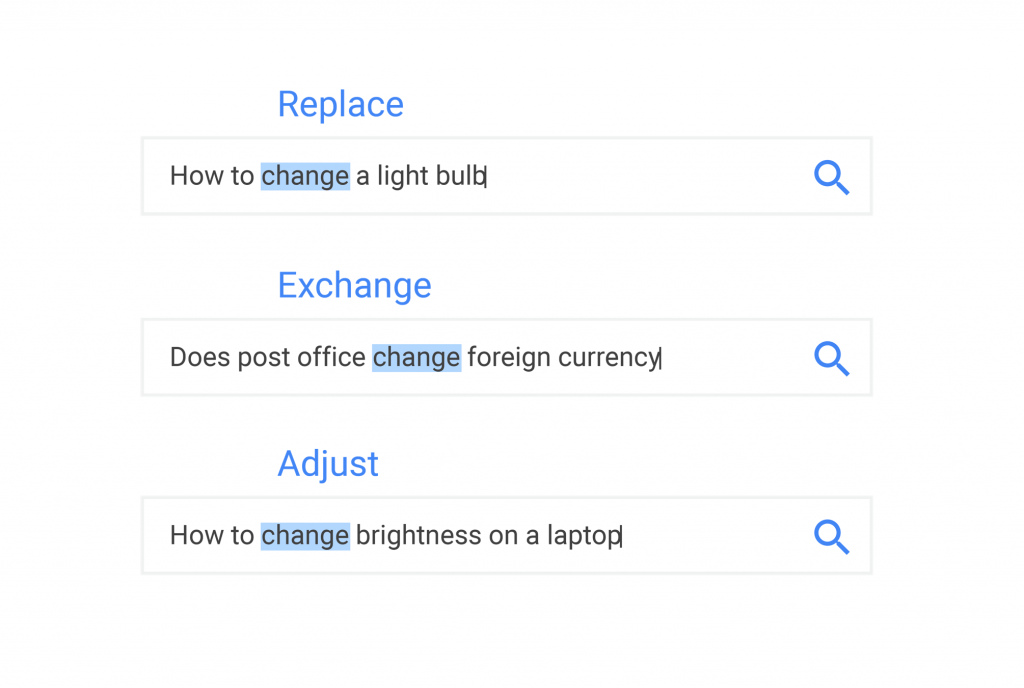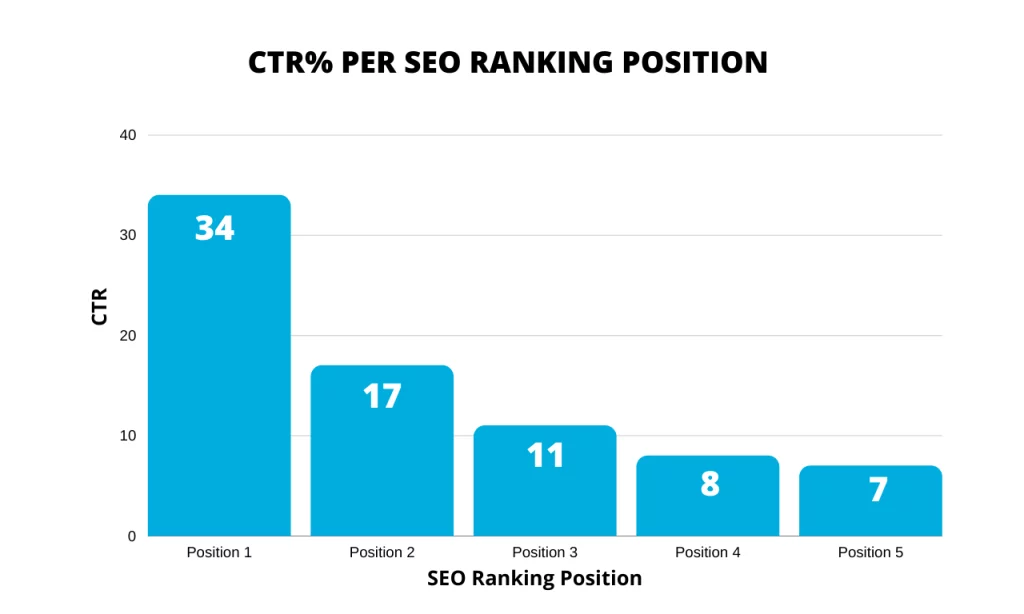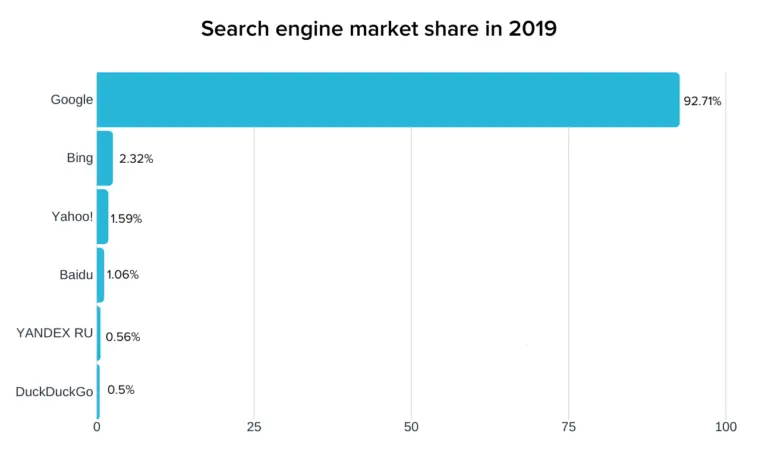The Complete Guide to Search Engines and How they Affect Your Business
In this quick tutorial, I’ll be answering the question: “What is a search engine, and how does it work?” It’s easier than you think!
Introduction: What is a Search Engine and Why Do We Care?
Search engines are the third most popular way to access the internet. They allow us to find what we are looking for with just a few clicks. A search engine, or more specifically, an internet search engine, is a website that provides search results for queries entered by users in an aggregated list of websites.
A search engine’s algorithm helps it rank and sort results so we can find what we are looking for. However, there is more to a search engine than just its ability to pull up relevant information. It also has an impact on how we think and behave.
We should care about search engines because they help us find what we are looking for on the internet and make our lives easier.
How Search Engines Work and the Role of Algorithms
Everyone has a dream of being on top of Google’s search results for their chosen keyword. Well, the key to achieving that is understanding how search engines work and what role do algorithms play in it.
In this article, we will be talking about the role that algorithms have in the modern-day search engine. What are they? How can they help you? And a few tips to make your website more “search engine friendly.”
The algorithms used by search engine spiders are a crucial element of any SEO strategy. They tell these bots how to rank websites for different queries and evaluate pages based on content relevance, backlinks, and other factors. That is why it is essential for website owners to optimize their sites not only with keywords but also with these algorithms in mind.
In this quick tutorial, I’ll be answering the question: “What is a search engine, and how does it work?” It’s easier than you think!
If you are a developer, designer, small business owner, marketing professional, website owner, or seeking to create a personal blog or website for your business then you need to gain a deeper understanding of how search engines work.
Understanding how search engines work can help you get traffic to your site. This post will offer some insight into how engines crawl the web and index different pages, which should be helpful for anyone looking to take their optimization efforts a step further.
Social media is the first part of digital marketing you need to focus on. It’s the best way to create awareness for your brand and build loyalty before tackling SEO, SEM, or any other digital marketing tactics.
The intricacies of Google, Bing, and other search engines become more clear as you learn the three main processes (crawling, indexing, and ranking) that they follow. You’ll be busy for hours trying to understand which process is being used in your particular company
-
What does a Search Engine Do?
-
How Do Search Engines Work
What does a Search Engine Do?
Do you ever wonder how many times a day you use Google or any other search engine?
It’s not always clear how many times! However, you can get an estimate of how many hours are spent on Google searches with this reference. Each month, Google handles more than 2 trillion searches.
Search engines have taken over a lot of our lives and many millions of people do their shopping on Google. They’re a great tool that aids in learning, leisure, and business as well.
It’s not an exaggeration to say that we now depend on search engines for almost anything we do.
Google has become an indispensable tool for getting answers to all types of questions and queries. And this is why many prefer to use their services over other search engines.
It is not easy to explain how search engines decide what content goes into the search results. However, it does happen and they do try to find as many high-quality answers as possible.
How Do Search Engines Work
Google and other popular search engines are complex computer programs
Originally, when you type in a question or query into the search engine, search engines take time to prepare for that content. But now, these technologies have become much more advanced so when you type in your query, all of the results are pre-prepared so it can answer your question or give you quality results.
What does “preparation work” include? It is divided up into three main stages. The first stage is the process of discovering the information, the second stage is organizing the information, and the third stage is ranking.
Crawling, indexing and ranking are terms for tracking usage on the Internet. They can refer to general search engine algorithms or specific sites’ pages that contain advertisements hosted on them
Step 1: Crawling
Search engines have a number of computer programs called web crawlers that are responsible for finding information, all available on the Internet.
The job of these software crawlers (also known as search engine spiders) is to scan the Internet and find the servers (also known as webservers) hosting websites.
They start by scanning the target website for vulnerabilities using a wide range of tests. They then check if their access is blocked or not, and use a variety of methods to gain entry into the target system. Once they’ve gained access, they create a list of all the web servers to crawl, the number of websites hosted by each server, and start work on crawling them all.
They perform website audits to determine the number of pages on a given website, whether it is text content, images, videos, or any other format (CSS, HTML, javascript).
When visiting a website, visitors check the number of pages on the site as well as any links. They click through these links to find out more information about them and discover more pages within the site.
They keep track of when changes happen in websites so when new pages are added or when links are updated, they’ll know what needs to be done.
If you consider the amount of Internet content today and the fact that new pages are published on a daily basis, it becomes clear how much work this is. It’s hard to imagine all the work involved with managing this content.
Why should organizations care about the crawling process?
In the process of optimizing your website, one of the most important elements is ensuring that search engines can easily access it while providing a lot of value to readers. This is accomplished by simply making sure your website URL is written in a way search engines can understand.
As explained above, a lot of work goes into writing text for websites. You should try to make their job easier by following some crawl guidelines.
To make sure that crawlers can access your website quickly & without problems, there are a few things to consider.
-
The Robot.txt file is a simple text-based file that tells web robots (web spiders like Google and Bing) what parts of your website you don’t want them to index and visit. It’s a good idea to use the robot.txt file when you’re using resources like Google Analytics or other analytics tools, and it can also be helpful for protecting your website.
-
Big search engines like Google and Bing, offer tools so you can give them more information about your website (number of pages, structure, etc). They don’t need to find it themselves which makes it easier on them so they can focus on finding what you want them to.
-
It’s important to create a list of all the pages on your website so that you can monitor changes and ignore duplicates. To do this, use an XML Sitemap.
Step 2: Indexing
There is no point in building a search engine that simply crawls and provides very limited content
Information identified by crawlers needs to be organized, sorted and stored so that it can be processed by algorithms before being released for end-users.
This process is called Indexing.
Search engines don’t store all the information on a page, but they do keep things like: when it was created/updated, title and description of the page, type of content, associated keywords, incoming and outgoing links, and a lot of other settings that are needed by their algorithms.
Google indexes hundreds of millions of websites and creates a “backwards book” from its index. The search engine can then filter a website’s content by keyword.
There are many reasons an organization should care about indexing. For one, indexing helps improve business productivity, which means more efficient workflows and faster processing of data.
If your site is not in their index, searches cannot find it. This means you are missing out on potential profit.
The more pages you have in the search engine indexes, the more chances you’ll have of appearing in the search results when someone types a query.
By “appearing in the search results,” I mean anywhere on the site and not necessarily in the top searches or pages.
In order to appear in the first 5 positions of the SERPs, you have to optimize your website for web searches. This involves a process referred to as Search Engine Optimization or SEO.
How to find how many pages of your website are included in the Google index?
You can do that in two different ways
We recommend using the Google site operator followed by your domain name. For example, to search for the site directcybertech.com, use “site:directcybertech.com”. You can learn how many pages your given domain is seen on the Google Index.
Make a Google Search Console account and add your website.
Then look at the Coverage report and focus on the VALID AND INDEXED pages.

Step 3: Ranking
The Search Engine Ranking Algorithms
Depending on which keywords a company has invested in, they can determine if specific pages show up in the SERPS. The order of the pages is then decided by a search engine algorithm that decides based on how relevant a page is compared to other pages & relevancy to other people who have searched for similar keywords.
This is achieved by using search engine ranking algorithms
In simple terms, these are pieces of software that can type things for you without any effort on your behalf. They detect what keywords the user is looking for and what information to deliver.
Based on the information in their index, “this rule” and “these decisions” are made.
How do search engine algorithms work?
Over time, search engine ranking algorithms became more complex, but that doesn’t mean they aren’t working or that the job performance isn’t stellar.
At the beginning (think 2001) it was as simple as matching the user’s query with the title of the page. But this is no longer the case.
It’s not clear what Google’s ranking algorithm takes into account, but it’s clear that no one knows because it takes 256 rules for the system to make a decision.
And this includes Larry Page and Sergey Brin, who created the original algorithm.
Machine Learning & AI have changed a lot in the past decade and now take decisions based on a number of external information sources to provide content that keeps staying relevant.
In order to make it easier for you to understand, here is a simplified process of how search engines rank their results:
Step 1: Analyze User Query
First, the search engines need to understand what information the user is looking for.
To do that, they analyze the user’s query (search terms) by breaking it down into a number of individual words.
Keywords are words that have a specific meaning and purpose
For example, when you type “How to make a chocolate cake”, search engines know from the words how-to that you are looking for instructions on making a chocolate cake and thus the returned results will contain cooking websites with recipes.
If you search for “Buy refurbished ….”, the returned results will include e-commerce websites and online shops.
Machine learning algorithms help them understand that “how to replace a light bulb” is the same as “how to change a light bulb.”

They have become very clever at interpreting spelling mistakes, understanding plurals, and translating natural language queries to writing in a super-accurate way.
Step 2: Finding matching pages
The second step is to search the index and determine which pages can answer any given query.
This is a very important stage for it helps search engines and web owners learn more about their website and what needs to be changed or improved.
Search engines need to return the best possible results in an expeditious manner; we don’t want dissatisfied users and web owners who fail to get traffic & visits.
Google has long used SEO techniques to influence the rankings of its site, but this is also the point where you can try to influence their decision with your own content.
To give you a better idea of how matching works, these are the most important factors:
Title and content relevancy – the page is relevant and the title and content summarize the question.
Type of content – If a user is searching for images, the returned results will contain only images and not text.
Quality of the content – When composing summary descriptions of a news story, you need to be thorough, informative, and biased – but not in one direction or the other. You also need to make sure that your descriptions cover both sides of the story..
Quality of the website – A high-quality website is one that Google likes. It should be creative, engaging, and easy to navigate.
Date of publication – For news-related queries, Google wants to show the latest results so the date of publication is also taken into account.
The popularity of a page – This is not about the traffic your website is getting but how people perceive your business, specifical pages with a high search rank.
Content with references (backlinks) from other websites has a higher chance of getting picked up by the search engines. This process is also known as “off-page” SEO
Language of the page – When users are searching content on the website, they’re served pages in their language. It might not always be English and this is okay!
Webpage Speed – Faster loading websites have a small advantage against slower loading websites.
Device Type – Users searching on your site are provided with mobile-friendly landing pages that don’t seemingly interrupt their browsing experience
Location – Users searching for places near them to dine will see results related to their location
Google searches for what you’re looking for, and more importantly, it does it better than anyone else. It makes use of more than 255 factors in its algorithms to ensure that you’re happy with the results that appear.
Why care how search engine ranking algorithms work?
Your website needs to appear in the top positions on the first page for it to receive traffic from search engines.
It is statistically proven that users largely click on one of the top 5 results (both desktop and mobile), which shows that the different versions of the page are valuable for different purposes.

It’s important to appear on the first page of the results to get any traffic at all.
The benefits of SEO go beyond just traffic. They can provide you with other important pieces of information, like appointments & growth opportunities.
There are several problems with these claims about how understanding how search engines work can help you increase your traffic. While it is true that there has to be some type of correlation between SEO and rankings, knowing about something like this doesn’t guarantee any kind of increase in traffic whatsoever.
Conclusion
Search engines have evolved to be extraordinarily complex computer programs. The interface may seem simple but their work and how they make decisions is unexpectedly complex.
Google’s search engine crawlers help gather as much information as possible from publicly available websites to help improve user experience.
They develop and create algorithms that can use data collected from specific searches to return the best possible options for users, thus giving them their most relevant outcome.
The amount of data they have to digest is enormous and the process is completely automated. Artificial intelligence is replacing the need for human intervention during the design process of algorithms.
You are the webmaster of your business & when it comes to SEO, it’s important that you create websites that provide relevant information in an easy-to-find manner. A website with a straightforward structure is more likely to be crawled by crawlers & indexed by search engines easily.
After they have successfully “read” your website, you need to help them with their search ranking algorithms so they can pick your website when a user types a relevant search query.



1 thought on “How Search Engines Work and the Role of Algorithms”